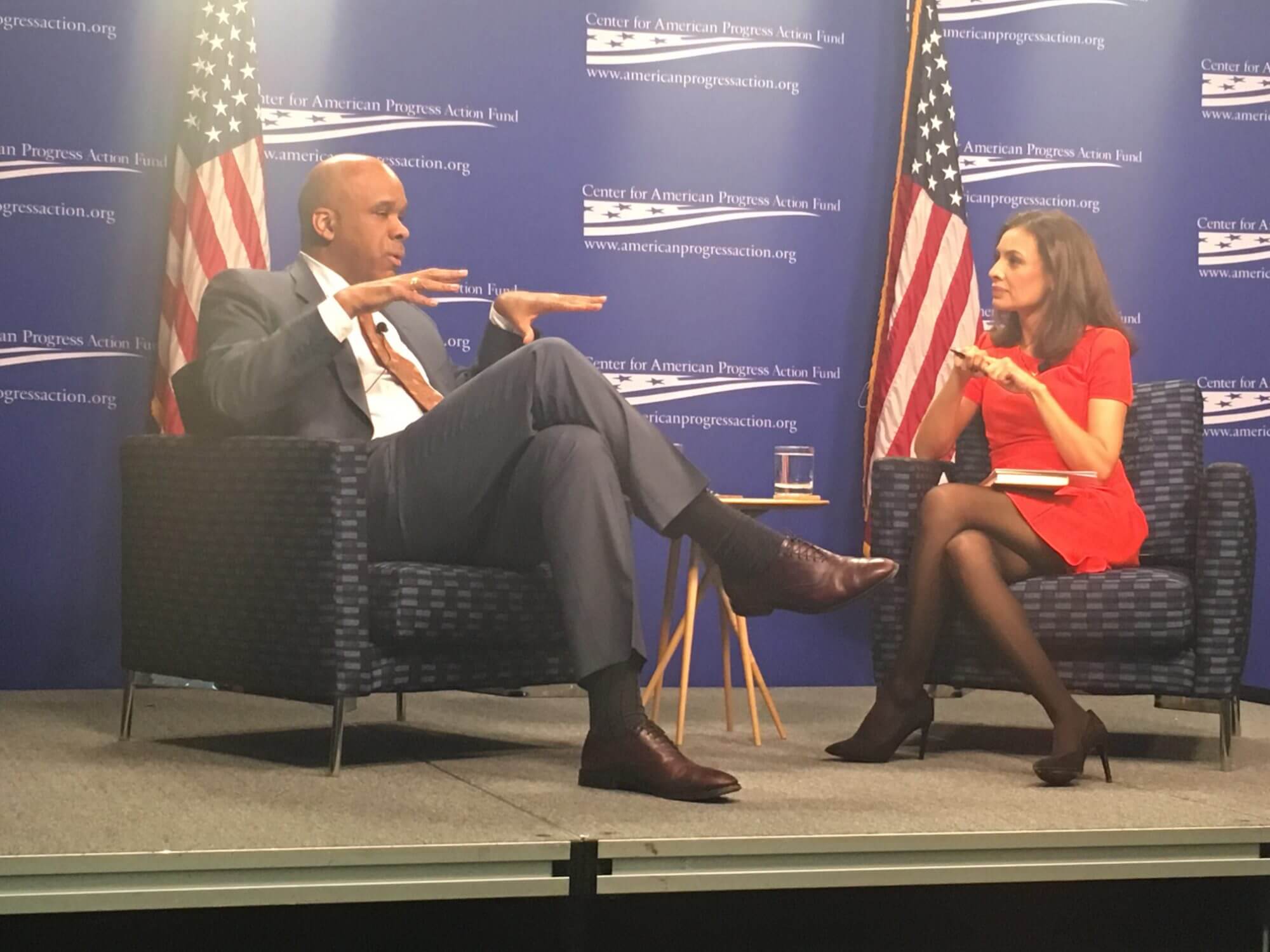WASHINGTON — Democratic presidential campaigns should spend more on hiring and turning out people of color as the electorate grows more diverse, a Center for American Progress fellow said Tuesday.
In an event at the left-leaning think tank, author Steve Phillips said the country has a “new majority,” one that becomes less white every election cycle.
Phillips, who wrote the new book “Brown is the New White,” said Democratic campaigns should spend “hundreds of millions of dollars” on outreach and recruiting more non-white staffers.
“To be effective in a multiracial society, you have to have great cultural competence,” Phillips said. “We have the opportunity in this election to take this on.”
Former Secretary of State Hillary Clinton’s campaign staff looks more like the national population in terms of racial diversity, according to a July report by Inclusv, a group founded by former Obama staffers focused on campaign staff makeup. The report found white people comprise 68 percent of Clinton’s staff, compared to roughly 63 percent of Americans who identify as non-Hispanic white, according to the census.
Vermont Sen. Bernie Sanders, though, has a far more homogenous staff. The report found that 90 percent of his staff is white. Only 3 percent of his staff is African American, and 7 percent is Latino, Inclusv found.
In 2012, blacks comprised 13.4 percent of voters and Latinos 8.4 percent. But more Latinos are expected to vote in coming cycles: The Pew Research Center said in December that the Latino electorate will likely double by 2030.
Phillips said Democrats should take outreach to Latinos more seriously and commit millions of dollars more to voter turnout and registration campaigns, especially since the party’s eventual nominee could face a Latino candidate on the Republican side in November. He also said Clinton and Sanders should embrace “amnesty” in their immigration policies.
Republican presidential hopeful Marco Rubio, who finished a strong third in the Iowa caucuses Monday night, could threaten the Democratic nominee, Phillips said. The Florida senator, whose parents’ came `from Cuba, could “mask various right-wing policies and make inroads with communities of color,” according to Phillips.
“If Democrats can’t make clear that they’re looking out for these communities,” he said, “then someone like Rubio is a grave threat.”
Clinton far outpaces Sanders among people of color in polling samples: According to an online NBC News poll from January, she leads Sanders 63-20 among black voters and 54-33 among Latinos.
In October, the Clinton campaign launched “Latinos for Hillary,” organizing a string of events aimed at Hispanics, including one with former San Antonio Mayor Julian Castro, who some have floated as a possible running mate for Clinton.
That same month, Sanders appointed Arturo Carmona as his Latino outreach director. Carmona had been executive director of Presente.org, a Latino advocacy group.
Phillips said conservatives, including the wealthy Koch brothers, are also involved in Latino outreach. They have poured millions of dollars into Libre, a right-leaning group that hopes to convince Latinos to vote Republican.
Democrats should also pursue more aggressive voter registration policies, Phillips said.
“It shouldn’t be that difficult for every high school senior to get a voter registration card,” he said. “If we want everyone to participate, it’s not actually that hard to make it happen.”
Phillips began his career as a civil rights lawyer in San Francisco. He later founded PowerPAC, a progressive group aimed at social justice causes.


